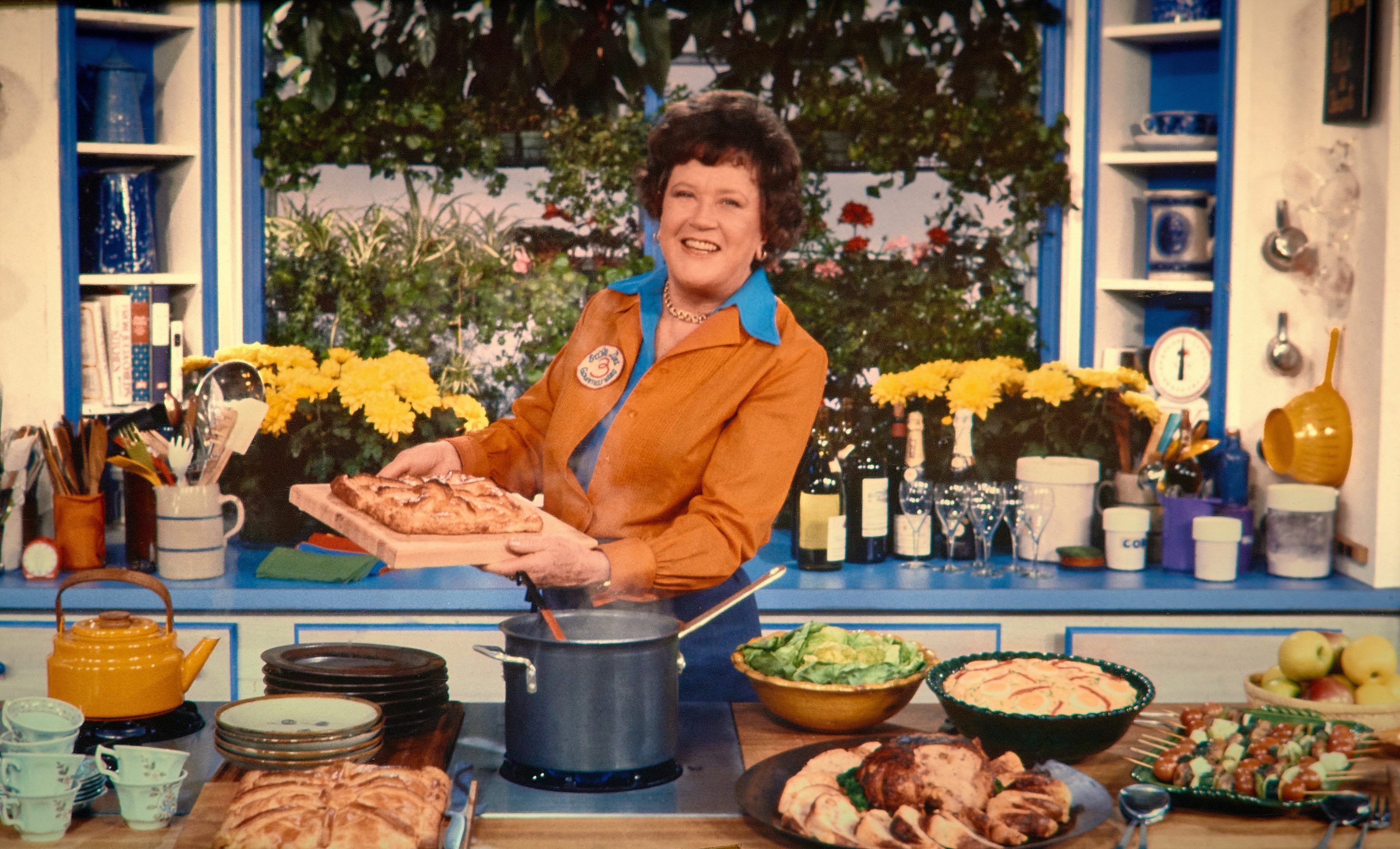This is something TV does beautifully – long-form profiles of complicated people.
From Doris Kearns Goodwin’s Washington and Lincoln to Ken Burns’ Franklin and Hemingway, films have found the points where history and personality merge. Now comes a confluence:
— Monday (Memorial Day): Goodwin’s “Theodore Roosevelt” begins at 8 p.m. on History. That’s the same night that CNN debuts “Julia,” its Julia Child (shown here) film, at 8 and 10 p.m. ET.
— Tuesday: The second half of the Roosevelt film is at 8 p.m., preceded by a 5:30 rerun of the opener.
— Friday (June 3): Most PBS stations air “Joe Papp in Five Acts,” at 9 p.m. Also, on Saturday: CNN reruns “Julia” at 9 p.m. ET.
The styles vary, mostly because of the eras. Child died in 2004 at 91, Papp in 1991 at 70; there’s ample film of them, plus the recollections of current people who knew them. Roosevelt died in 1919 at 60; we get re-enactments, some of which feel exaggerated.
Despite the differences, these portray similar people who rushed into life. Child did her TV cooking shows without scripts or breaks, bringing fresh spontaneity. Papp decided there would be free Shakespeare in New York’s parks; he persisted, even when the powerful parks chief tried to stop him.
And Roosevelt? He created his own unit of “Rough Riders” cowboys …lied his way onto one of the first ships to Cuba … then roared up San Juan Hill. He even tried to repeat that as a 58-year-old ex-president during World War I, until Woodrow Wilson stopped him.
These people varied physically – from the 5-foot-8 Roosevelt to the 6-foot-2 Child — but had a remarkable capacity to re-invent themselves.
Child did that at 50. When “The French Chef” was finally published (after she spent a dozen years co-writing it), she threw herself into a surge of TV and personal appearances.
Roosevelt did it twice. After his wife died, he became a cowboy; after a rare political failure, he became a Rough Rider.
And Papp presented only the re-invented version. Friends didn’t know about his first two marriages or his youth. His third wife said he used British pronunciations and said his mother was from England.
All of that changed when Papp planned “The Merchant of Venice.” After complaints that the show is anti-Semitic, he finally discussed his past:
He had grown up as Joseph Papirofsky, the son of Jewish immigrants from Lithuania and Poland. His mother was a seamstress, his father was a trunkmaker and his Brooklyn boyhood was low-income.
Fascinated by Shakespeare, he brought it to people of all incomes. He also created an indoor theater that launched “Hair,” “A Chorus Line,” “A Normal Heart,” “For Colored Girls (etc.)” and more.
The PBS film is frank about Papp’s excesses. He was a tough leader who even fired his top colleague.
Roosevelt also had a tendency to go overboard, the History film says. He led the Rough Riders in a uniform he commissioned from Brooks Brothers.
His biggest mistake may have been as New York’s police commissioner. Unlike his predecessors, he insisted on following the city law, closing all bars on Sundays. For working men – whose only day off was Sunday – it was an outrage; soon, his party was out of power and he was a cowboy.
Maybe those were male-ego flaws. Child seemed to have none of them; at dinner parties, she even showed the tape of Dan Aykroyd pretending to be her.
The Child film is from the same people who made “RBG,” the warm and deep portrait of Ruth Bader Ginsburg. The Roosevelt one was produced by Goodwin, Leonardo DiCaprio and many others.
And the Papp one? It’s listed as a 2010 film and reached some festivals in 2012 . Now it resurfaces a decade later, part of a surge of excellent profiles.
